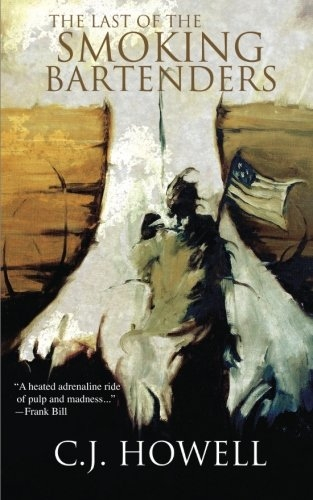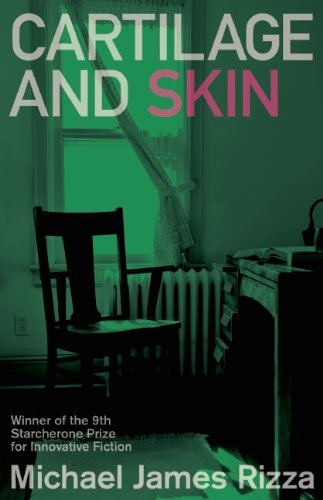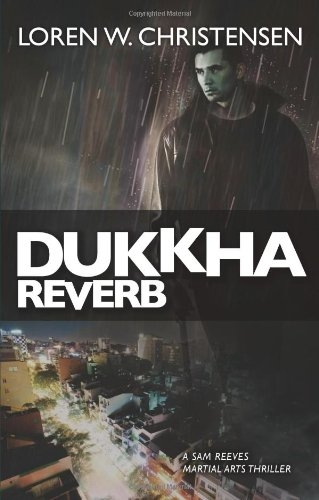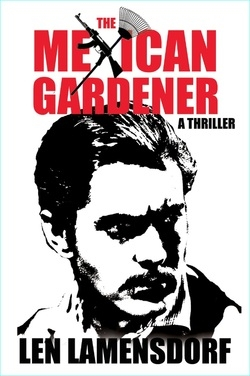Get out the Map
New Thrillers Explore Exotic Landscapes and Intimate Locales
Where to? Every good story starts with this question in one form or another. The destinations could span the globe or be as close as the contours of the mind. Stories are journeys, and these new thrillers take to the trails: from the American Southwest to the Ukrainian steppes, from Monterrey, Mexico, to Ho Chi Minh City, Vietnam. Each tale draws us into the extreme worlds of heroes and villains, where it can sometimes be difficult to tell the two apart.
The Last of the Smoking Bartenders

C. J. Howell
New Pulp Press
Softcover $14.95 (244pp)
978-0-9855786-8-8
The great American road trip takes a dark turn in C. J. Howell’s moody debut thriller. As we hitch a ride in a musty Malibu with an off-the-grid drifter called Tom, we travel not only the reservation roads of the Southwest but also the paranoid twists and turns of Tom’s own mind. Is he really on a mission to stop terrorists from blowing up the Hoover Dam? Or is belief that “The Network” is constantly tracking him a psychotic delusion that Tom is playing out in the real world? Howell keeps us guessing as Tom adds a homeless rafting guide and a band of burned-out meth dealers to his posse. Each person he meets is less stable than the last, and it’s easy to believe that the world has spun just as far out of control as Tom believes.
As bleak and violent as Tom’s trail is—Molotov cocktails and crossbows wreak destruction everywhere he goes—he’s also a bit of a poet. “The sky lavendered,” Tom notes at the end of another day on the road, seeing the beauty in his otherwise grim world. Howell presents Tom’s inner moments, like the dialogue throughout the book, without quotation marks, effectively emphasizing Tom’s ascetic, renunciate frame of mind. Howell gets us thinking like Tom and compels us to follow his lead down a very rocky road.
SHEILA M. TRASK (November 30, 2013)
Cartilage and Skin

Michael James Rizza
Starcherone Press
Softcover $16.00 (328pp)
978-1-938603-19-8
Our ever-changing perception of reality is at the heart of Michael James Rizza’s unsettling debut novel. In Cartilage and Skin, Rizza shines an uncomfortable light on his voyeuristic antihero, Dr. Parker, an eccentric recluse holed up in an anonymous apartment, working on an undefined manuscript. Parker has an odd relationship with the people around him, from the nameless boy he sends on errands to the agoraphobic neighbor whose mail he diverts, but the former professor doesn’t think these things odd. He’s quite adamant about his innocence, actually, calling to mind the pleading, hyperrational voice of the madman in Poe’s “Telltale Heart.”
Like Poe’s madman, Parker is an unreliable—and creepy—narrator from the start, but Rizza conveys his perspective eloquently and consistently, half convincing the reader that maybe he’s right. Maybe there’s a reasonable explanation for the envelopes of pornography he hides, or for the presence of a street urchin in his apartment. On the other hand, would an artist truly abscond with Parker’s manuscript and borrow his chapter headings for her painting titles, as he believes? And what do we make of Dr. Parker’s extended inner monologues that consider the close relationship between violence and sexuality?
Rizza keeps us just off-balance enough to entice us to turn the page, trying to figure out what the uncanny Dr. Parker has actually done and what he has imagined. Unlike traditional thrillers, Cartilage and Skin is not so much concerned with who has committed what crime, but with the very way we define said crimes.
SHEILA M. TRASK (November 30, 2013)
Broken Angels

Molly Best Tinsley
Fuze Publishing
Softcover $16.99 (338pp)
978-0-9897306-0-0
Intrepid CIA operative Victoria Pierce trades the sandstorms of Sudan for the Ukrainian steppes in the latest spy thriller from accomplished author Molly Best Tinsley. In Satan’s Chamber, Tinsley introduced Pierce as a novice who nonetheless trekked to North Africa to find her missing father. In Broken Angels, the clever agent takes her crime-solving skills to Ukraine, on an undercover mission to thwart the illegal export of highly enriched uranium. It’s a tall order, but Pierce is never one to back down from a challenge. Instead, she also takes on a ruthless gang of sex traffickers who prey on young girls. With Tinsley’s expert research and eye for detail guiding the story, the two cases weave themselves into an elaborate web that even Pierce is challenged to untangle.
Tinsley creates emotional charge through breathtakingly close calls at border checkpoints and eye-to-eye confrontations with would-be slave traders. Victoria and her colleagues, including zealous archaeologist-activist Hannah, seldom back down. Still, they’re not cookie-cutter heroines but real women. Tinsley makes sure we know this by including friendly banter and details like Victoria’s disgust at having to wear high heels as part of her undercover garb. Light one moment, dark the next, Tinsley’s writing can also be visceral, like when she describes the gaze of an approaching predator, burning “like a knife peeling off her skin.” The combination heightens anticipation: you never know which way she’ll turn next.
Similarly, the setting is both authentic and evocative, and Tinsley’s deep knowledge of the area shows in her smooth inclusion of archaeological digs and Ukrainian history. She slips some political themes in here and there, contrasting corrupt modern-day politics with an egalitarian society from 7000 BC, for instance, but she never dwells on the background, always returning to Victoria’s dual quest to save girls from their graves and the world from its bombs.
SHEILA M. TRASK (November 30, 2013)
Dukkha Reverb
A Sam Reeves Martial Arts Thriller

Loren W. Christensen
YMAA Publication Center
Softcover $12.95 (542pp)
978-1-59439-263-4
Buy: Local Bookstore (Bookshop)
Martial artists study contrasts: deep calm gives way to heated battle in the blink of an eye. Loren W. Christensen, himself a black belt several times over, cleverly captures this balancing act in Dukkha Reverb, the second novel in his Sam Reeves Martial Arts Thriller series. He does this by sending Portland, Oregon, police officer—and talented martial artist—Sam Reeves to Vietnam, a country that is itself a study in contrasts.
Christensen sends Sam to Ho Chi Minh City, where he is comically terrified by the frenzied traffic on the streets but then entranced by the spectacular view from the top floor of a high-rise. He can’t hold his beautiful girlfriend Mai’s hand in a public café, but she can seduce him in a room with walls of glass. He’s captivated by his father’s serene living quarters but notices that in addition to meditative koi ponds, there are security cameras in every corner. He’s come to Vietnam looking for peace but discovers he’s being hunted by a nefarious Vietnamese mob boss with a grudge. For every yin in Sam’s life, there is a yang.
Watching Sam duke it out with the world is a pleasure, due to Christensen’s light touch with dialogue and a cast of eccentric characters whose antics provide comic relief between conflicts. The combat scenes, while expertly choreographed, are not just pretexts for action, either. Instead, they stem directly from Sam’s personal passions: while he’s fighting to stop a massive child sex-trafficking ring, for instance, he’s also taking in a teenage runaway who asks him for help. When Sam steps up to fight, he means it.
SHEILA M. TRASK (November 30, 2013)
The Mexican Gardener

Len Lamensdorf
SeaScape Press
Hardcover $22.95 (263pp)
978-0-9669741-8-8
If The Mexican Gardener were a movie, you’d be well served to finish your popcorn during the previews because there isn’t a lot of downtime during the story. Len Lamensdorf starts with urgent action: chemist José Rivera-Diego is shaving his head and changing his truck’s license plate on his very hurried way out of town. On his heels is Hector Palacios, megalomaniac CEO of the ultra-successful company KEMEX, where José had been working in good faith until he discovered what really went on in their secret laboratories. José knows what evil Hector is capable of and that there is literally no time to waste.
Lamensdorf writes with brisk confidence, whisking José from place to place, present to past, without missing a beat. The story is complex enough to make an intriguing puzzle—which of José’s “friends” are for real is an ongoing question, for instance—but doesn’t rely on unnecessarily complicated scaffolding to support it. Likewise, Lamensdorf addresses larger themes, such as class and racial discrimination, but he doesn’t let them impede the story’s progress. Instead, such issues are a natural part of José’s life and fit seamlessly into his tale.
It’s a tale that takes us from California to Mexico and back again and culminates in a truly unsettling “treasure hunt” that seals José’s determination to stop Hector from implementing his bio-terrorist plans.
SHEILA M. TRASK (November 30, 2013)
Sheila Trask
